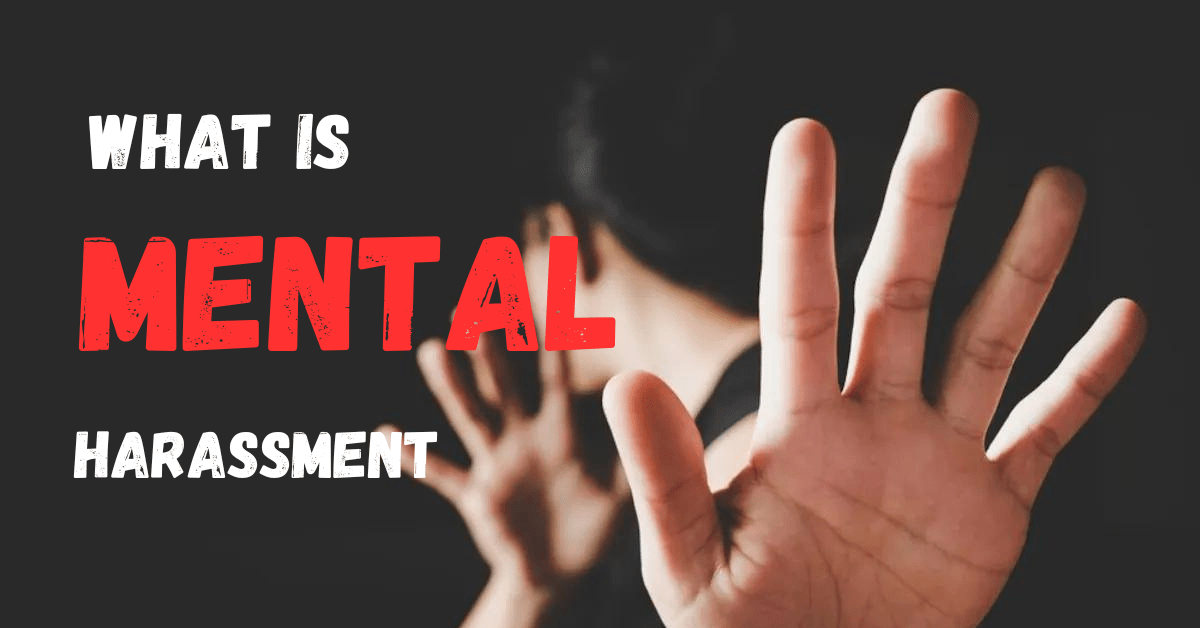"Breaking the Silence: Addressing Mental Harassment."

"Breaking the Silence: Addressing Mental Harassment."
Mental harassment often referred to as psychological or emotional harassment is a serious concern affecting individuals across various domains of life In India legal provisions to address mental harassment have evolved over time to protect the mental wellbeing of individuals This comprehensive exploration will delve into the laws related to mental harassment in India focusing on both civil and criminal aspects 1 Constitutional Perspective The Constitution of India serves as the supreme law ensuring fundamental rights and freedoms for its citizens While it doesn't explicitly mention mental harassment the right to life and personal liberty under Article 21 has been interpreted expansively by the judiciary to encompass the right to live with dignity The courts have recognized that mental wellbeing is an integral part of a dignified life forming the constitutional foundation for addressing mental harassment 2 Civil Laws a Protection of Women from Domestic Violence Act 2005 This act is a milestone in recognizing and addressing various forms of abuse against women including mental harassment within the domestic sphere The definition of domestic violence under the act includes emotional or verbal abuse making it a comprehensive tool to protect women's mental wellbeing The issuance of protection orders and the provision for monetary reliefs empower victims to seek redressal for the psychological trauma they endure b The Mental Healthcare Act 2017 This legislation is pivotal in safeguarding the rights of individuals with mental illnesses It emphasizes the right to live with dignity and prohibits cruel inhuman and degrading treatment The Act also mandates the establishment of Mental Health Review Commissions which play a crucial role in protecting individuals from mental harassment within mental health institutions c Indian Penal Code IPC The IPC addresses several offenses related to mental harassment i Section 499 Defamation Mental trauma often accompanies false statements that damage an individual's reputation Defamation cases therefore provide a legal avenue to seek redressal for the psychological harm caused ii Section 503 Criminal Intimidation Threats that induce fear and mental distress fall under this section It plays a crucial role in discouraging and penalizing acts of intimidation leading to psychological harm iii Section 509 Insult to the modesty of a woman This section addresses acts intended to insult the modesty of a woman recognizing the psychological impact of such offenses on the victim 3 Workplace Harassment a Sexual Harassment of Women at Workplace Prevention Prohibition and Redressal Act 2013 This act focuses on creating a safe and inclusive work environment by addressing sexual harassment which often has severe psychological implications It mandates the formation of Internal Complaints Committees ICCs to address complaints promptly The Act also prohibits retaliation against the complainant ensuring that victims are protected from further mental trauma b The Industrial Employment Standing Orders Act 1946 While not directly addressing mental harassment this Act requires companies to establish standing orders that include provisions against any form of harassment These orders provide a framework for addressing grievances related to mental harassment at the workplace contributing to a healthier work environment 4 Cyber bullying The Information Technology Act 2000 and subsequent amendments address cyber bullying an emerging form of mental harassment Provisions related to online harassment stalking and defamation are crucial in dealing with instances where technology is employed to cause psychological harm The legal framework aims to bridge the gap between traditional offenses and those facilitated by technology 5 Criminal Laws a Section 306 Abetment to suicide and Section 309 Attempt to commit suicide of the IPC These sections come into play when mental harassment leads to severe consequences such as suicide or attempted suicide Those found responsible for persistent mental torture may face legal consequences emphasizing the gravity of actions causing severe mental distress b Section 354D Stalking of the IPC Stalking a form of persistent and unwanted attention is recognized as a criminal offense under this section Whether physical or virtual stalking can lead to profound psychological trauma and legal provisions aim to deter and punish such behavior Conclusion While the legal landscape in India has evolved to address mental harassment comprehensively challenges remain Implementation gaps social stigma and a lack of awareness often hinder the effectiveness of these laws Strengthening legal frameworks promoting awareness campaigns and fostering a culture of respect and empathy are essential for creating a society where mental wellbeing is prioritized and individuals are protected from the deleterious effects of mental harassment Legal education and sensitization programs can contribute to a more inclusive and empathetic society ensuring that the laws in place effectively serve their purpose in safeguarding mental health